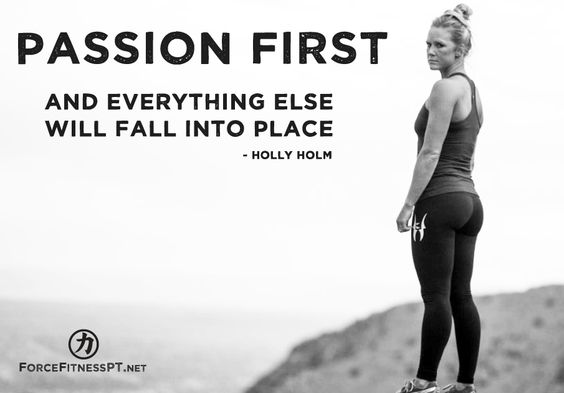In Hollywood, personal training is now the new bartending.
Wannabe actors and actresses no longer spend their time between auditions waiting tables and pouring drinks – they’re now in gyms, training clients to lose weight and get fit.
It’s easy to see why, as personal training appears to be such a lucrative, appealing profession.
You make a good rate, pick and choose your working hours, spend time with people who appreciate your knowledge, help clients transform their bodies and their lives, plus it sounds pretty cool to tell your friends you’re a personal trainer (even if your parents and grandparents don’t class it as a “real job.”)
So why then, is it so difficult to make a career out of personal training?
The answer could be because you’re not choosing the right personal training certification.

What’s In a Personal Training Certification?
As so many people now want to be certified as a personal trainer, companies have gotten wise to this, and so the market is flooded with numerous courses (many of which are solely online) designed to certify potential PTs.
Get them in cheap, move them quickly through a qualification process, and throw them out the other end with no real experience, knowledge or confidence. That's the business model for many certification programs.
Which is why, my first suggestion is to simply pick ANY personal training qualification course, and just get yourself certified so you can get insured.
Want to become a personal trainer? Start by getting ANY certification AND insurance!
That might sound incredibly unethical and immoral, but bear with me...
It Isn’t What You Learn at PT School That Matters
The level of knowledge and education in generic personal training qualification programs is extremely basic. If you’ve been training yourself for any length of time, or are at all familiar with strength training, anatomy and various components of fitness (basically if you follow top quality trainers and coaches such as Alan Aragon, Layne Norton, Bret Contreras, Mike Israetel or Lyle McDonald) you won’t learn anything new with your basic qualification.
Plus, the people skills you pick up in real life, and even in your previous professions far outweigh what you’re taught in terms of dealing with clients and picking up new business.
What will really set you apart? What you do in terms of continuing education, and how you conduct yourself through your early personal training days.
Here's what some fitness professionals say about it:
Make education a continuing, neverending process. Nido Qubein#Quote
— Diet Health Fitness (@Fitness_4Her) December 8, 2015
Voice for FitnessContinuing education is priceless. Applying it in a way that is unique and exactly what your customers...
Posted by Voice for Fitness on Monday, December 7, 2015
Start by Developing Your Business and Marketing Skills
You won’t last long in the industry if you don’t gain clients! And seeing as you’re the type of person who’s reading this, it's likely that your knowledge is already great enough that you can help your average client get where they want to be.
So instead of focusing on your skills as a PT, your first step is to take a business or marketing course.
You already know how to help clients get results. But do you know how to find new clients?
See what’s on at your local college or adult education center, or even sign up for an online business course. This should take you through business planning, managing client accounts, marketing your services and even how to approach potential new business ventures.
If you can find a course targeted specifically to fitness professionals, all the better. Learning how to approach people on the gym floor, and engage with them, while not just trying to sell your services is absolutely key in making your business a success.
Build Your Expertise In An Area You’re Passionate About
You don’t “need” to do any particular course.
Just because your friend is a qualified sports massage therapist, or the other trainers at the gym are all certified to teach CrossFit or kickboxing, doesn’t mean you have to be. The whole reason you got into the industry was to enjoy it, so pick something you’re passionate about.
This could be sports nutrition, Pilates, strength and conditioning, or even pre- and post-natal training. If you love what you'll do, you'll attract more clients, get better results and establish yourself as an expert in something that you genuinely look forward to getting out of bed for each day.
Follow the Pros
Ask other trainers at the gym, or fellow fitness pros in online networks about what courses and qualifications they recommend. Not only can this help you pick something useful and engaging, but also means you avoid any courses that might not be as helpful as they're hyped up to be.
Not all programs are created equal. What education are other fitness pros investing in?
As there's a lot of money to be made from young, eager trainers wanting to learn, some companies are producing courses that will do very little for your career development. This is the minority, but it's still something you need to be careful about.
Look to the Future
Does the course you're looking at have regular re-examinations and do you have to continuously expand your knowledge base in order to remain certified?
If so, chances are it's a worthy investment.
It may seem costly to have to pay for more courses, or even to re-take an exam every few years, but you can rest assured that if a company's doing this, they genuinely care about the quality of the coaches under their certification, and will do their utmost to make you the best trainer they can.
An easier personal training certification course often indicates a less valuable one
Other signs of a valuable (and ethical) course include those that have higher levels of requirement for entry, as well as those that limit participant numbers.
Will a Certification Make You a Worse Trainer?
The main question to ask yourself when choosing a personal trainer certification is...
"Will this make me worse at my job?"
The answer in almost 100% of cases will be a resounding "no." Even if you don't learn anything new, you'll probably network with fellow professionals and maybe pick up a few hints and tips.
Therefore, any qualification is potentially worthwhile.
That said, we don't have unlimited funds for continuing education, so a better question is "Will this make me better at my job and improve my relationship with clients?"
If you're absolutely sure it will, then it's certainly worth your investment.





